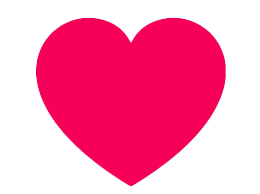##Life Through the Square: When Capturing the Moment Takes Over the Experience
Instagram plays a significant role in modern-day networking. However, this instant networking can sometimes trap us. Instagram constantly makes us swipe and like, gradually disconnecting us from reality.
Facebook and Instagram's news feed. When we enter the Facebook or Instagram app, we unconsciously keep scrolling down. During this process, we can discover the information we are looking for, watch interesting videos, and sometimes encounter unpleasant or completely useless information and scroll quickly down. It is easy to see this behavior as an unconscious act, but in fact, the brain is waiting for a "reward." Early users immediately recognized the danger of the news feed. That is why in 2004, when the news feed was first introduced, there was a strong backlash from users.
people wanted to stop the news feed, and 10% of users even boycotted the service. However, the number of service users doubled, and now Facebook and Instagram without the news feed are unimaginable. The subconscious desire to maintain familiarity has defeated reason.
Facebook and Instagram's news feed. When we enter the Facebook or Instagram app, we unconsciously keep scrolling down. During this process, we can discover the information we are looking for, watch interesting videos, and sometimes encounter unpleasant or completely useless information and scroll quickly down. It is easy to see this behavior as an unconscious act, but in fact, the brain is waiting for a "reward." Early users immediately recognized the danger of the news feed. That is why in 2004, when the news feed was first introduced, there was a strong backlash from users.
people wanted to stop the news feed, and 10% of users even boycotted the service. However, the number of service users doubled, and now Facebook and Instagram without the news feed are unimaginable. The subconscious desire to maintain familiarity has defeated reason.
Facebook and Instagram's news feed. When we enter the Facebook or Instagram app, we unconsciously keep scrolling down. During this process, we can discover the information we are looking for, watch interesting videos, and sometimes encounter unpleasant or completely useless information and scroll quickly down. It is easy to see this behavior as an unconscious act, but in fact, the brain is waiting for a "reward." Early users immediately recognized the danger of the news feed. That is why in 2004, when the news feed was first introduced, there was a strong backlash from users.
people wanted to stop the news feed, and 10% of users even boycotted the service. However, the number of service users doubled, and now Facebook and Instagram without the news feed are unimaginable. The subconscious desire to maintain familiarity has defeated reason.
Facebook and Instagram's news feed. When we enter the Facebook or Instagram app, we unconsciously keep scrolling down. During this process, we can discover the information we are looking for, watch interesting videos, and sometimes encounter unpleasant or completely useless information and scroll quickly down. It is easy to see this behavior as an unconscious act, but in fact, the brain is waiting for a "reward." Early users immediately recognized the danger of the news feed. That is why in 2004, when the news feed was first introduced, there was a strong backlash from users.
people wanted to stop the news feed, and 10% of users even boycotted the service. However, the number of service users doubled, and now Facebook and Instagram without the news feed are unimaginable. The subconscious desire to maintain familiarity has defeated reason.
Facebook and Instagram's news feed. When we enter the Facebook or Instagram app, we unconsciously keep scrolling down. During this process, we can discover the information we are looking for, watch interesting videos, and sometimes encounter unpleasant or completely useless information and scroll quickly down. It is easy to see this behavior as an unconscious act, but in fact, the brain is waiting for a "reward." Early users immediately recognized the danger of the news feed. That is why in 2004, when the news feed was first introduced, there was a strong backlash from users.
people wanted to stop the news feed, and 10% of users even boycotted the service. However, the number of service users doubled, and now Facebook and Instagram without the news feed are unimaginable. The subconscious desire to maintain familiarity has defeated reason.
Facebook and Instagram's news feed. When we enter the Facebook or Instagram app, we unconsciously keep scrolling down. During this process, we can discover the information we are looking for, watch interesting videos, and sometimes encounter unpleasant or completely useless information and scroll quickly down. It is easy to see this behavior as an unconscious act, but in fact, the brain is waiting for a "reward." Early users immediately recognized the danger of the news feed. That is why in 2004, when the news feed was first introduced, there was a strong backlash from users.
people wanted to stop the news feed, and 10% of users even boycotted the service. However, the number of service users doubled, and now Facebook and Instagram without the news feed are unimaginable. The subconscious desire to maintain familiarity has defeated reason.
Facebook and Instagram's news feed. When we enter the Facebook or Instagram app, we unconsciously keep scrolling down. During this process, we can discover the information we are looking for, watch interesting videos, and sometimes encounter unpleasant or completely useless information and scroll quickly down. It is easy to see this behavior as an unconscious act, but in fact, the brain is waiting for a "reward." Early users immediately recognized the danger of the news feed. That is why in 2004, when the news feed was first introduced, there was a strong backlash from users.
people wanted to stop the news feed, and 10% of users even boycotted the service. However, the number of service users doubled, and now Facebook and Instagram without the news feed are unimaginable. The subconscious desire to maintain familiarity has defeated reason.
Although it is a deformed market structure, all products and content are becoming "Instagrammable" to make them more visible. Commercial space design, food plating, and makeup that looks good on Instagram photos are popular. Some even try to change their appearance to be more like an Instagram photo. People also need to be "Instagrammable." Of course, "Instagrammable" does not guarantee quality, but that is no longer important. The value of the goods has been fully utilized by taking beautiful photos to decorate my Instagram feed.
The same applies to travel destinations. Even if the journey is difficult, people go there if the background in the square photo is "Instagrammable."
There's so many travel spots in the world even though most people say, "It is disappointing to find nothing when I actually go there." "Just one photo" is a very important issue for Instagrammers. This is because the value of my life is determined by the activity of curating my life, which means taking pretty photos and decorating my Instagram feed.
In the Netflix drama "Black Mirror," there is an episode where the reputation score on social media influences real-life. If the score is high, people can buy airline tickets without waiting in line and live in good houses. If the score is low, they are excluded from all benefits and become the target of contempt. This is not just a story in the drama. Followers and likes are power, and it leads to real-world wealth. If you exhibit your life more beautifully than anyone else, you can have this power. In the past, only special people could become stars, but now anyone can become a celebrity if they raise their reputation on social media. These are the so-called "petty celebrities" who are close to us.
Most humans have a desire for fame and power. In the past, passing an exam or succeeding in one's career was enough to satisfy these desires. Nowadays, people can have fame, power, and wealth if they become famous. If they cannot become famous, they have to stay close to them, even if it means taking pictures with celebrities. In addition, in this era of excessive information and goods that change too quickly, the sense of urgency to "not fall behind" has created a new type of human who is obsessed with the world of social media beyond the basic networking desires.
The desire of those who look into the square of Instagram is not great, but simply the desire to become "ordinary" without falling behind. However, if we acquire information mainly through SNS, everything seems too high. Living in an era of hyper-connection, where we can observe other people's lives with just one smartphone, we think we know everything, but in reality, we only see a small part of the world that is displayed smoothly. However, objectively recognizing this is not easy.



